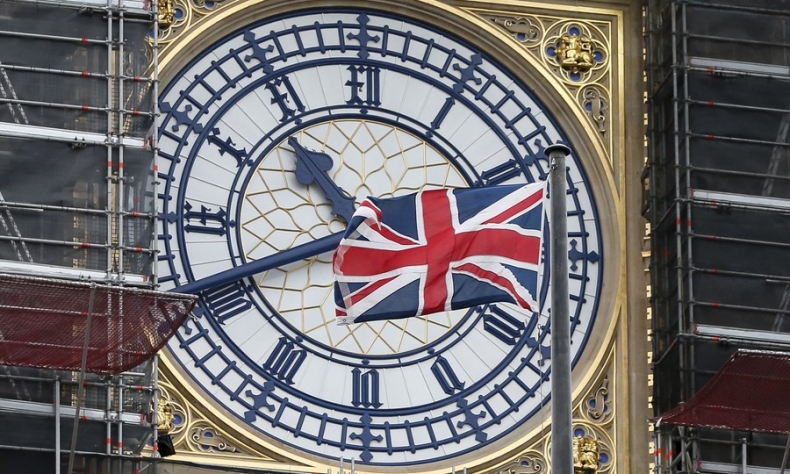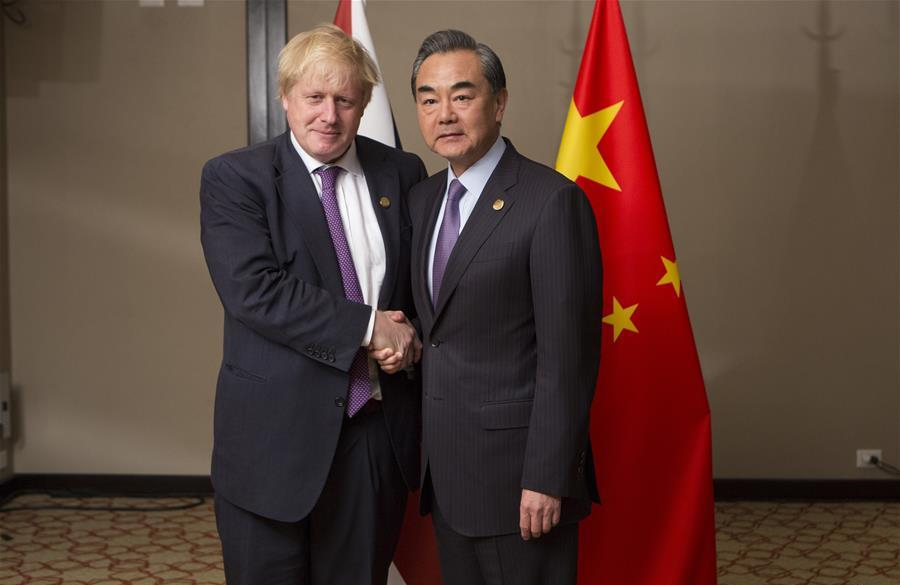What Does Britain Want from China – A Country Sending Mixed Messages

The contradictions on display illustrate the deep abiding divisions within the governing Conservative Party on the matter and the pressing reality that China is deeply essential to the country’s post-Brexit vision.
Last week the Guardian newspaper reported British Prime Minister Boris Johnson had told a Downing Street roundtable event with business leaders he was “fervently Sinophile” and would seek to strengthen economic and trade links with Beijing, resuscitating dialogues previously frozen owing to tensions in Hong Kong.
The report came amid a flurry of U.K. actions against China in the past few weeks, including a speech at the United Nations by Foreign Secretary Dominic Rabb attacking Beijing over Xinjiang, Britain pitching itself as an “Indo-Pacific power” to take on China, as well as the banning of China Global Television Network (CGTN) by Britain’s television regulator Ofcom.
This suggests Britain has firmly cast in its lot with the United States. But Johnson’s claim begs the question: Just what does Britain want from China? The contradictions on display illustrate the deep abiding divisions within the governing Conservative Party on the matter and the pressing reality that China is deeply essential to the country’s post-Brexit vision.

This has created a political tug of war between the two factions, many of whom are eager to push closer to Washington and promote decoupling with China. This reveals the more troubling reality that Britain doesn’t have a coherent China strategy, and that seems certain to cause problems down the road.
The Conservatives are known most primarily in Britain for the fact they are unapologetic, pro-business, something many deplore. Since the Thatcher era of the 1980s, the party has run on a doctrine of neoliberal economics, opting for low taxes, low regulation and open markets.
Under such a mantra, foreign investment into Britain is to be encouraged even if it is at the expense of domestic industries or jobs. Equally, the Conservatives admired China as an overwhelming business opportunity. Former Prime Minister David Cameron created what was called a “golden era” of relations with China, and sought to frame Britain as China’s partner in the West.
Unfortunately, the world has changed and that era has since long gone. Britain’s obligation to the strategy of the United States is part of the reason, along with a determination to achieve Brexit, which influenced many of the right-wing factions in the Conservative Party, opting for a more nationalistic view of the world, to turn anti-Chinese.
The Conservative Right has for decades been a headache to the front bench, be it in government or opposition, as they seek to repeatedly undermine the leadership and push a harder agenda on various issues. Traditionally since the post-Thatcher era, their point of emphasis has been Europe, and various rebels have been remarkably successful in forcing Euroscepticism into the mainstream and bringing about Brexit itself.
But now Brexit is complete, these individuals have since redefined their purpose. Having done away with Europe, their emphasis is now China, and a coalition of right-wing Conservative MPs have persistently sought to try and force the government to take a harder position on Beijing.
For Boris Johnson personally, this is unfavorable, forcing him to have to negotiate and compromise with the rebels to stop them from completely upending the government’s position.
Initially, the government sought to include Huawei in their 5G networks, but growing pressure from the Trump administration, as well as a growing rebellion in parliament as the COVID-19 pandemic forced anti-China sentiment into the mainstream, made this untenable. This, combined with tensions over Hong Kong, has sent U.K.-China relations on a sharp downward trajectory.
However, it is obvious that the benefits of China are not lost on Boris. His comments will infuriate many, but he seems to maintain the longstanding concept that Britain has a lot to lose if it is locked in a confrontation with Beijing.
A post-Brexit Britain which is now losing trade with Europe ultimately needs more markets, and, like it or not, China happens to be the largest market in the world. This means that Britain’s China approach is marred with uncomfortable contradictions, and there is no clear strategy or approach at the helm.
What is visible is a confrontation between numerous interest groups, both pushing for harder and open approaches simultaneously, which creates uncomfortable crisscrossing on a number of issues. What does Britain want? It’s impossible to say, not so much about a country as it is about a myriad of agendas.
Ultimately, this is hardly a vision and nor is it a position of strength. Britain needs to adequately and straight-out communicate to China what it wants, where it stands and what it does not want, than persistently communicate rampant hostility and then indicate it still values business. Beijing might appreciate the clarity.
Tom Fowdy is a British political and international relations analyst and a graduate of Durham and Oxford universities. He writes on topics pertaining to China, the DPRK, Britain and the U.S.
 Facebook
Facebook
 Twitter
Twitter
 Linkedin
Linkedin
 Google +
Google +







